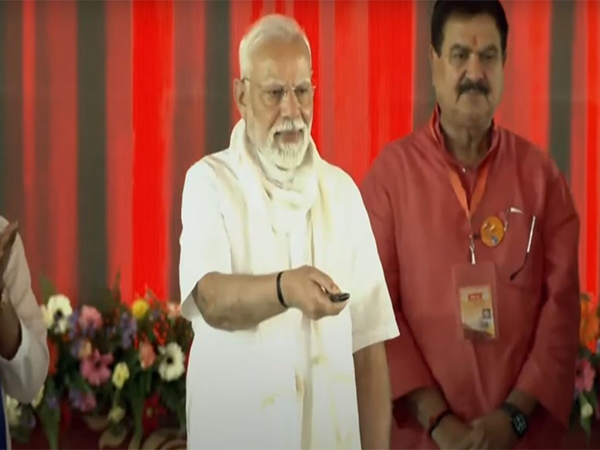The Scaremonger: FinMin's chief advisor propagates fear of deflation

What has happened
- The chief economic advisor to the finance ministry predicts a deflation
- India is used to inflation; the last deflation was in the 1970s
- The wholesale price index has been falling since November
- The deflation is mostly an import
What\'s the reason
- Falling oil prices are the biggest reason for the deceleration
- Weak Chinese and Japanese economies have also contributed to the deflation
- Sugar prices have fallen, thanks to the crumbling of a nexus between politicians and mill owners
- Foreign exchange inflows have strengthened rupee, making imports cheaper
What next
- FinMin wants growth, but the RBI would be happy to leave inflation behind
- The RBI doesn\'t have too much control on interest rates
- Global economic prospects look weak; domestic scene not too strong either
- The ministry and the RBI may agree on reflating the economy at some point
Delhi is hot and dry, monsoon clouds are nowhere in sight, and Arun Jaitley has taken off for cooler climes. A weekend in Turkey will do wonders to his spirits; when he returns, we should expect some even more upbeat statements than is his wont.
He, however, left his chief economic advisor behind, who has expounded an unusual angle on the economy - that it is on the verge of deflation.
This is not a familiar word in India; it is inflation that we have gobbled for decades. Whatever rises can also fall; but a fall in prices is unusual in India. The last time it happened was in the 1970s. The price index shot up then because the Arabs quadrupled oil prices overnight in 1973. So the deflation that followed was largely due to base effect.
Inflation is calculated in terms of change from one month to the same month in the following year. If prices shoot up in one month, so will inflation, which is the change between that month and the same month in the previous year; but inflation in the same month the following year will come down.
So is there deflation? And if there is, is it real, or is it due to base effect? We could get about half a dozen answers to the question, for there are that many price indices.
If we take the most commonly used wholesale price index of the office of the economic advisor in the commerce ministry, it fell year-on-year for the first time in November 2014, and has shown negative change every month since then.
By and large, the fall has been accelerating. The index in May 2015 was 4.1% below the index a year earlier.
What is this deflation due to? The biggest impact is of the 19 per cent fall in international prices of crude oil and oil products; their 9 per cent weight in the index means that they would have brought down the index by 1.8 per cent on their own. We should thank American frackers; by perfecting this new technique of recovering mineral oil by cracking rocks, they have made the US a major oil producer, weakened Arab influence and brought down oil prices.
The other important factor is the slowdown in the Chinese and Japanese economies. They are buying less of our iron ore and manganese ore, whose prices have come down. The Japanese are also eating fewer of our prawns, whose prices have come down by a tenth.
Chances are @RBI, @FinMinIndia will agree on reflating the economy at some point
This is the time to gorge ourselves on sweets, for sugar prices have come down by a sixth. For many decades, sugar prices were kept high by a compact between politicians: those who ruled the major sugar-producing states, especially Maharashtra and Uttar Pradesh, kept pushing the price their farmers got for sugar cane, and politicians at the Centre forced banks to give credit to sugar mills so that they could stock the sugar they could not sell. This conspiracy has crumbled, and sugar prices have come down.
Rich foreigners had hopes of the new government that came in last year; they expected it to be friendly to foreign investors. The Indian economy also seemed to be doing better than the rest of the world; in particular, the slowdown in China made look India brighter.
So foreign investors started buying assets in India. That led to a rise in foreign exchange flowing into the economy. Although the Reserve Bank bought up a good bit of it, it could not prevent the Rupee from getting stronger.
A rise in the Rupee meant a fall in the Rupee value of other currencies, and made imports cheaper. That brought down import prices - another factor behind the deflation.
Investment is suffering from the weak state of the world economy; as a result, prices of steel, metals and machinery are on the way down. Machinery prices in India are still holding up; but iron and steel prices have come down by a tenth over the past year.
The deflation is largely an import; there are not many signs of the domestic economy weakening. The finance ministry is expansionist; it would like the economy to boom, and has been urging the Reserve Bank to loosen strings and bring down interest rates.
The Reserve Bank is not in a hurry; it would not be unhappy if India left its inflationary record behind. It also does not have much influence over the interest rates charged by banks, for which high interest means more profits.
But the global economic prospects look weak, and domestic prospects do not look strong. So the chances are that both the Reserve Bank and the finance ministry will agree on reflating the economy at some point.
The views expressed here are personal and do not necessarily reflect those of the organisation.
First published: 7 September 2015, 4:14 IST






![BJP's Kapil Mishra recreates Shankar Mahadevan’s ‘Breathless’ song to highlight Delhi pollution [WATCH] BJP's Kapil Mishra recreates Shankar Mahadevan’s ‘Breathless’ song to highlight Delhi pollution [WATCH]](https://images.catchnews.com/upload/2022/11/03/kapil-mishra_240884_300x172.png)

![Anupam Kher shares pictures of his toned body on 67th birthday [MUST SEE] Anupam Kher shares pictures of his toned body on 67th birthday [MUST SEE]](https://images.catchnews.com/upload/2022/03/07/Anupam_kher_231145_300x172.jpg)






